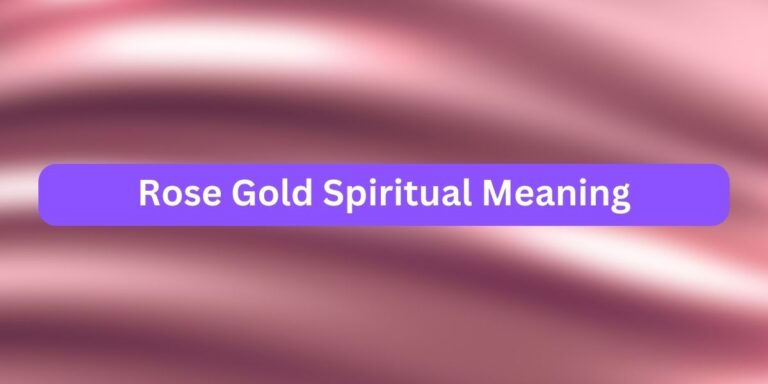Gazing into the Crystal Ball: Predicting the Future
Predicting the future has been a longstanding human interest, with roots in ancient civilizations. In ancient Greece, the Oracle of Delphi was a prominent figure consulted for future insights. The Oracle would enter an altered state of consciousness and deliver ambiguous messages interpreted by priests.
In ancient China, the I Ching, or Book of Changes, was used for divination, employing a system of hexagrams to provide guidance on future events. As societies progressed, the practice of future prediction evolved. The 19th century saw the rise of the Spiritualist movement, where mediums claimed to communicate with the deceased and offer future insights.
This movement contributed to the development of psychic readings and various divination methods. The desire to predict the future is deeply ingrained in human nature, driven by the need for control, reassurance, or curiosity about upcoming events. Throughout history, from ancient oracles to modern psychics, the methods of prediction have changed, but the fundamental human desire to understand the unknown has remained constant.
Today, future prediction continues to captivate people worldwide, with individuals seeking guidance about their prospects. While the scientific community generally regards these practices as pseudoscience, they persist as a cultural phenomenon and a source of comfort for many.
Key Takeaways
- The history of predicting the future dates back to ancient oracles and has evolved to modern psychics.
- Psychics claim to predict the future through various methods such as intuition, mediumship, and energy reading.
- Tools of the trade for psychics include crystal balls, tarot cards, and other forms of divination to aid in their predictions.
- The debate surrounding psychic predictions involves skepticism from critics and belief from supporters.
- Famous predictions, such as those by Nostradamus, are examined for their accuracy and impact on society.
- Technology and AI are changing the future of prediction, with advancements in data analysis and machine learning.
- Exploring the ethics and implications of predicting the future raises questions about free will and the potential for manipulation.
The Science Behind Psychic Reading: How Do Psychics Claim to Predict the Future?
Methods of Prediction
Psychics claim to predict the future through various methods, often relying on their intuition, extrasensory perception (ESP), and heightened sensitivity to energy and vibrations. Many psychics believe that they are able to tap into a universal energy or cosmic consciousness that allows them to access information about future events. Some psychics claim to receive visions or messages from spirit guides or deceased loved ones, while others may use tools such as tarot cards, crystal balls, or astrology to gain insights into the future.
The Scientific Debate
While the scientific community remains skeptical about the validity of psychic abilities, some researchers have explored the possibility of extrasensory perception and telepathy. Studies on psychic phenomena have yielded mixed results, with some claiming to have evidence of psychic abilities, while others remain unconvinced. The debate surrounding psychic abilities continues to be a topic of interest and controversy within the scientific community, with ongoing research seeking to understand the nature of psychic phenomena.
The Process of Psychic Readings
Psychic readings often involve a combination of intuition, empathy, and interpretation of symbols and energies. Psychics may claim to receive information through clairvoyance (clear seeing), clairaudience (clear hearing), or clairsentience (clear feeling), allowing them to perceive information beyond the physical senses. While skeptics argue that psychic readings are based on cold reading techniques and psychological manipulation, believers maintain that genuine psychic abilities exist and can provide valuable insights into the future.
Tools of the Trade: Crystal Balls, Tarot Cards, and Other Methods of Divination

Psychics often use various tools and methods to aid in their practice of predicting the future. One of the most iconic tools is the crystal ball, which is believed to help psychics access visions and insights into future events. The crystal ball is thought to amplify psychic abilities and serve as a focal point for receiving information from higher realms.
Similarly, tarot cards are commonly used in psychic readings, with each card representing different archetypes and symbols that can be interpreted to provide guidance and predictions. Other methods of divination include astrology, palmistry, numerology, and scrying, each offering unique approaches to gaining insight into the future. Astrology involves analyzing the positions of celestial bodies to make predictions about an individual’s personality and future events.
Palmistry focuses on reading the lines and mounts on a person’s palm to reveal information about their life and potential future outcomes. Numerology uses numbers and mathematical principles to interpret patterns and cycles in a person’s life, while scrying involves gazing into reflective surfaces such as water or mirrors to receive visions or messages. These tools and methods are believed to serve as conduits for accessing information from higher realms or tapping into universal energies.
While skeptics may dismiss these practices as mere superstition or pseudoscience, believers in psychic abilities maintain that these tools can provide valuable insights and guidance for those seeking clarity about their future.
The debate surrounding psychic predictions is a contentious one, with skeptics questioning the validity of psychic abilities and believers advocating for the existence of genuine psychic phenomena. Skeptics argue that psychic readings are based on cold reading techniques, psychological manipulation, and the power of suggestion, rather than genuine supernatural abilities. They point to the lack of empirical evidence supporting psychic claims and argue that many predictions are vague and open to interpretation.
On the other hand, believers in psychic abilities maintain that genuine psychics exist and can provide valuable insights into the future. They argue that personal experiences and anecdotal evidence support the existence of psychic phenomena, citing instances where psychics have accurately predicted future events or provided meaningful guidance to individuals. Believers often emphasize the intuitive and empathic aspects of psychic readings, highlighting the emotional support and reassurance that can be gained from a genuine psychic reading.
The debate surrounding psychic predictions raises important questions about belief, skepticism, and the nature of reality. While skeptics advocate for critical thinking and evidence-based reasoning, believers emphasize the importance of intuition, spirituality, and personal experiences in understanding psychic phenomena. As the debate continues, it is clear that both sides bring valuable perspectives to the discussion, challenging us to critically examine our beliefs and remain open to new possibilities.
Famous Predictions: Examining Past Prophecies and Their Accuracy
| Prediction | Prophet | Date | Accuracy |
|---|---|---|---|
| The End of the World | Various | Throughout history | Not accurate |
| Technological Advancements | Various | 20th century | Partially accurate |
| World War III | Various | 20th and 21st century | Not accurate |
| Medical Breakthroughs | Various | 20th and 21st century | Partially accurate |
Throughout history, there have been numerous famous predictions made by psychics, prophets, and seers that have captured public attention. Some of these predictions have gained widespread recognition for their alleged accuracy, while others have been met with skepticism and criticism. One famous example is Nostradamus, a 16th-century French astrologer and physician who is known for his book “Les Propheties,” which contains cryptic verses that are believed to predict future events.
Nostradamus’ writings have been interpreted to foretell various historical events such as wars, natural disasters, and political upheavals. Another well-known prediction is the sinking of the Titanic, which some claim was foretold by psychic mediums prior to the tragic event. According to reports, several individuals claimed to have received premonitions or visions warning them about the sinking of the Titanic, leading to speculation about psychic abilities and precognition.
Additionally, there have been instances where psychics have allegedly predicted major world events such as terrorist attacks, economic downturns, and natural disasters. While some famous predictions have been hailed as evidence of genuine psychic abilities, others have been dismissed as coincidences or misinterpretations. Skeptics argue that many alleged predictions are vague and open to interpretation, making it difficult to determine their accuracy.
Believers in psychic abilities point to instances where psychics have provided specific details about future events that have come to pass, citing these as evidence of genuine precognition.
The Future of Prediction: How Technology and AI are Changing the Game
New Frontiers in Prediction
In addition to traditional methods of prediction, technology is being used to explore new areas such as predictive algorithms for financial markets, weather forecasting models, and predictive healthcare analytics. AI-powered systems are being developed to analyze complex datasets and make predictions about consumer behavior, market trends, and potential risks.
Revolutionizing Decision-Making
These advancements are revolutionizing how we approach prediction and decision-making, offering new opportunities for understanding and preparing for future events. With the ability to analyze vast amounts of data and identify patterns, businesses and organizations can make more informed decisions, reducing the risk of uncertainty and improving outcomes.
Ethical Considerations in the Age of Predictive Technologies
While technology has the potential to enhance our ability to predict future outcomes, it also raises important ethical considerations regarding privacy, bias in algorithms, and potential misuse of predictive technologies. As we navigate this new era of prediction powered by technology and AI, it is crucial to consider the implications of these advancements on society and ensure that ethical guidelines are in place to safeguard against potential risks.
Should We Trust the Crystal Ball? Exploring the Ethics and Implications of Predicting the Future

The practice of predicting the future raises important ethical considerations regarding trust, consent, and accountability. As individuals seek guidance from psychics and mediums about their future prospects, it is crucial to consider the ethical implications of relying on predictions for making life-altering decisions. The power dynamics between psychics and their clients also raise questions about informed consent and responsible practices within the industry.
Furthermore, there are concerns about the potential for exploitation and manipulation within the psychic industry, as vulnerable individuals may be susceptible to false promises or misleading predictions. It is essential for practitioners in this field to uphold ethical standards and prioritize the well-being of their clients by providing honest guidance and fostering a sense of empowerment rather than dependency. In conclusion, predicting the future has been a timeless pursuit that has captivated humanity for centuries.
From ancient oracles to modern psychics, the practice of predicting the future has evolved over time but continues to spark fascination and debate. Whether one believes in psychic abilities or remains skeptical about their validity, it is clear that predicting the future raises important questions about belief, ethics, and our understanding of reality. As we navigate this complex terrain of prediction powered by technology and intuition alike, it is crucial to approach this practice with critical thinking, empathy, and ethical consideration for its implications on individuals and society as a whole.
If you’re interested in exploring the spiritual meanings behind everyday objects, you might find this article on the spiritual meaning of granddaddy long legs fascinating. Just like crystal balls, granddaddy long legs have a rich history of symbolism and significance in various cultures.
FAQs
What is a crystal ball?
A crystal ball is a spherical object, usually made of glass or crystal, that is used for scrying or fortune-telling. It is believed to have mystical or supernatural powers and is often associated with divination and clairvoyance.
How is a crystal ball used?
A crystal ball is typically used by a practitioner, such as a psychic or fortune-teller, who gazes into the ball to receive visions or insights about the past, present, or future. The process is known as scrying, and it is believed to allow the practitioner to access hidden knowledge or spiritual guidance.
What is the history of crystal balls?
The use of crystal balls for divination dates back to ancient times, with references to similar practices found in various cultures around the world. The concept of scrying with a crystal ball has been associated with mysticism, magic, and the occult throughout history.
Are crystal balls considered to be accurate for predicting the future?
The accuracy of crystal ball readings and predictions is a matter of belief and interpretation. While some people believe in the mystical powers of crystal balls and find them to be accurate, others may view them as purely symbolic or as a tool for introspection and self-reflection.
Can anyone use a crystal ball?
While anyone can technically use a crystal ball, the practice of scrying requires skill, intuition, and a certain level of psychic sensitivity. Many practitioners undergo training and practice to develop their abilities to effectively use a crystal ball for divination.







GIPHY App Key not set. Please check settings